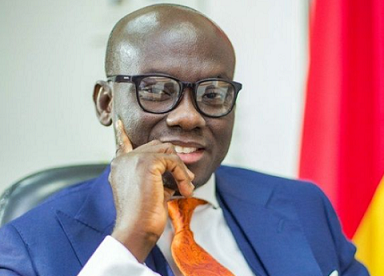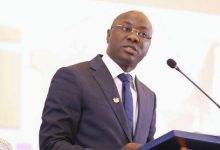
The Office of the Attorney-General and Minister of Justice, has said Parliament lacks the powers to direct the General Legal Council (GLC) to admit some 499 candidates to pursue the professional law programme at the Ghana School of Law.
The Office of the A-G said in as much as it recognises the powers of Parliament, it does not have the authority to control the process of admission into the law school.
The House by a resolution, last Friday, directed the GLC to admit all the 499 students who sat and obtained the advertised 50 per cent or better score in the 2021 entrance exams to pursue the professional law course at the school.
“The General Legal Council is directed to proceed and admit all the students who passed the entrance examination in accordance with the advertised rules of the examination,” the First Deputy Speaker of the House and MP for Bekwai, Joseph Osei-Owusu, directed.
But in a statement issued in Accra yesterday, the A-G’s Department said that power was a sole prerogative of the Executive as contained in the Legal Profession Act.
“I am constrained to advise that Parliament is devoid of a power through the use of Parliamentary resolutions, to control the process of admission into the Ghana School of Law.
“The mode of exercising legislative power enshrined in Article 106 of the Constitution does not admit of resolutions,” the statement said.
It continued: “In accordance with Section 13(1)(e) and (f) of the Legal Profession Act, 1960, (Act 32) the power to regulate admission of students to pursue courses of instruction leading to qualification as lawyers and to hold examinations which may include preliminary, intermediate and final examinations has been vested in the General Legal Council.”
He called the attention of the House to Section 1(5) of Act 32 which stipulates that “The Council shall in the performance of their functions comply with any general directions given by the Minister.”
“In my respectful opinion, [the above] provision underscores the capacity of the Executive, not the Legislature, through the Minister responsible for the General Legal Council, ie the Attorney-General and Minister of Justice, to direct and advise the Council on major matters of national importance”.
The Attorney-General said in as much as it appreciates Parliament’s concern for the 499 candidates, President Nana Addo Dankwa Akufo-Addo had directed, three days before the Parliamentary resolution, that he made the necessary intervention to the General Legal Council on behalf of the 499 students to address the issue.
“Within the constraints of the law, I am following up on the directive of the President to make the necessary interventions on behalf of the 499 students.”
According to the A-G, as has been trumpeted that the GLC had advertised 50 per cent as pass mark, same was not the case because it stated that “applicants may be granted admission if they have passed the entrance examination conducted by the GLC,” and that the notice did not spell out how the 50 per cent would be determined.
“It is clear therefore, that, a contention that the originally announced or advertised pass mark was 50 is erroneous and unsupportable.”
BY JULIUS YAO PETETSI


